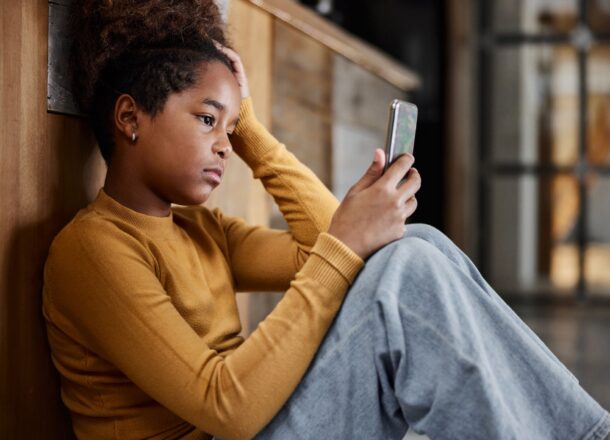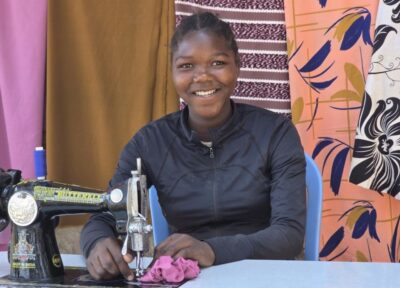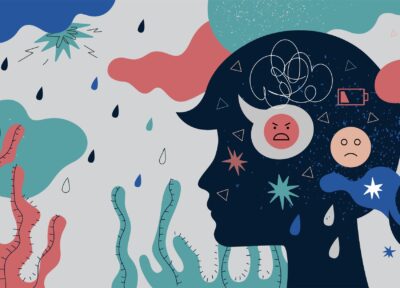
CrossCountry donates £10,000 to Strengthen Railway Children’s Youth Platform
CrossCountry’s contribution is helping expand opportunities for young people through Railway Children’s Youth Platform and Youth Ambassador Project.

If the news is getting you down, you're not alone. Here are some tips to help you cope.
Overwhelmed by the news? You’re not the only one. Wars, disasters, and crises are just a swipe away. The theme of World Mental Health Day 2025 is around mental health access for people in catastrophes and emergencies, as well as the mental health impact of constantly being exposed to news coverage of disaster events.
In this insightful and honest piece, Alex, 22, explains why young people in particular feel the pressure to “keep up” with every devastating story and why it’s okay to step back and set boundaries.
Author: Alex Appleby | Date: 9th October 2025
Sometimes, it feels like the world never stops throwing bad news at us.
Wars. Natural disasters. Cost-of-living struggles. Climate change
You open your phone in the morning and there it is, headline after headline, video after video. And before you’ve even had breakfast, your mind’s already racing.
There’s this growing sense that the world is on fire, and we’re watching through a screen, unable to do anything about it. It can make you feel helpless, anxious, or even numb.
You often don’t even realise how tense you are until you catch yourself doomscrolling late at night with that tight feeling in your chest.
Many young people describe feeling:
And honestly? Those feelings make sense. We’re carrying information our brains weren’t designed to handle 24/7.
For a lot of us, crises aren’t just stories on the news. They shape the world we’re inheriting — our futures, our safety, our environment.
Seeing these events unfold over and over again can build up a quiet sense of fear and instability.
There’s also a sense of responsibility. Social media tells us to “stay informed,” and that’s important. But it can feel like if you don’t constantly check, you’re somehow not doing enough.
That’s a heavy burden for anyone, let alone young people who are still figuring their place in the world.

Here’s something we don’t hear enough: It’s okay to set boundaries with the news.
Taking a break doesn’t make you selfish or ignorant. It means you’re protecting your mental health so you can keep caring in a sustainable way.
Here are some things that can help:
This World Mental Health Day, remember that if the world feels overwhelming sometimes, you’re not weak — you’re human.
Caring deeply can be heavy, but you don’t have to carry it alone.
If you’re struggling, reaching out to someone — a friend, a teacher, a helpline — is a sign of strength, not failure. Your mental health matters just as much as the issues happening in the world.
If you’re struggling with your mental health, there’s plenty of support out there.
YoungMinds Textline – Text YM to 85258 for free, 24/7 support from a trained volunteer.
If you ever feel like you might harm yourself or you’re in immediate danger, call 999 or go to A&E.

CrossCountry’s contribution is helping expand opportunities for young people through Railway Children’s Youth Platform and Youth Ambassador Project.

With thousands expected to travel by train this festive season, Railway Children, LNER and safeguarding partners have joined together to raise awareness of vulnerability on the railway and help protect children at risk.

LNER colleagues completed intensive Railway Children safeguarding training to learn how to protect children at risk.

Read our guide to claiming your compensation and learn how to easily donate it to vulnerable children.

Martha’s story shows the amazing change girls can create when they’re given the chance.

If the news is getting you down, you’re not alone. Here are some tips to help you cope.
*UNICEF Perception of Youth Mental Health Report 2025, UNICEF and Youth Mental Health Coalition, June 2025.
**Adolescents with mental health conditions use social media differently to their peers, studies suggest, University of Cambridge, May 2025.